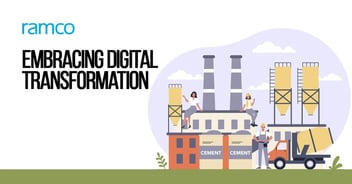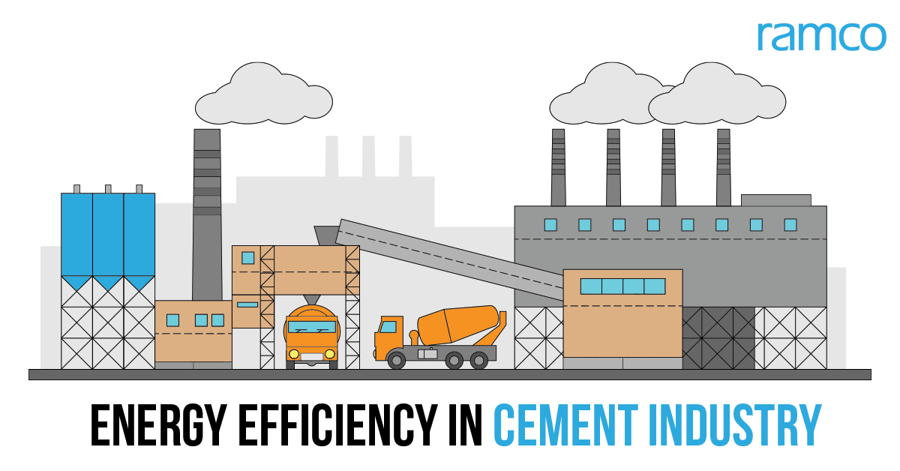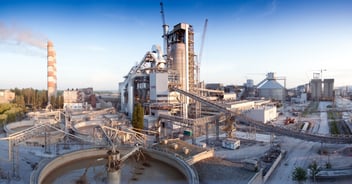

Let’s begin with this interesting trivia. Do you know what the second most consumed substance is after water? Cement! The industry undoubtedly helps in the realization of urban dreams – developing infrastructure and boosting the economy. But this industry has been facing the problem of stagnation, and this problem among others was exacerbated last year with the outbreak of a pandemic. With decreased demand and pressure on costs, the concrete/cement industry had a lot of concerns. But all that is changing.
The report by International Finance Corporation titled The Impact of COVID-19 on the Cement Industry reads, “Once countries begin to reopen post-pandemic, consumption of cement and concrete is expected to gradually recover, fueled by economic growth, urbanization, and population growth, especially in emerging markets.”
Energy Management in Cement Industry
As the cement plants will go full throttle on improving productivity to make up for the upcoming demand and to compensate for the past year, they may face a couple of challenges. Other than saving costs, they will have to be mindful about being energy efficient and using a robust and reliable solution to manage the operations in the cement plants. Professionals engaged in cement plants today want innovative solutions that will help improve plant utilization, optimize processes & reduce energy consumption.
We earlier mentioned the need of the hour is energy efficiency – at least one among them. We have to understand that one must plan energy efficiency after taking into account how the energy consumption is, in the industry. The energy consumption is based on:
- Type of process
- Type of equipment
- Operating efficiencies
- Local and national legislation
- Technology the plant uses
Once you know this, the next step would be to plan your energy management.
The concept of energy management is to reduce the loss of energy and cost of production. It can be done in various ways, some of which include:
- Optimization of the cement production process at every level
- Optimal planning of production schedules
- Energy audit and analysis
- Usage of low-cost fuel or alternative fuel
- Recovery of heat and utilization
- Reduce specific power consumption
Latest trends in Energy Management
To offset the challenges in the area of energy management and ensure energy efficiency in the global cement industry, the companies must employ cutting-edge technology solutions. The industry can think of the following:
- Installation of sensors/weighing systems
- Smart meters for accurate measurement
- Data acquisition from shop floor to board room
- Real-time data with a transfer rate of milliseconds
- Process data storage for getting business insights with AI technologies
- APC (Advanced Process Control system) Installation
- Remote access for online monitoring
In numerous ways, thus, a cement plant can optimize energy consumption and practice good energy management. However, without an enterprise solution specific to the cement industry, the points discussed earlier would only be a temporary improvement. An ERP specially designed for the cement industry would provide the following benefits to further optimize the plant and business operations:
- Data Visibility: With easy-to-understand, real-time information at their fingertips, decision-makers / plant managers can make more informed & actionable decisions that will impact energy consumption.
- Planning can be updated in real-time: Real-time data and historical data would mean improved visibility into inventory, grinding processes and other crucial aspects, and that would help in planning and predicting outcomes. You can save resources with careful planning, resulting in an efficient cement plant.
- Maintenance schedules can be precisely timed: With information on equipment running, and other indicators such as vibration monitoring, maintenance schedules can be timed well. An additional advantage of this would be less equipment downtime.
- Harnessing advanced and integrated process control systems can improve productivity. You will have control over your processes and will have a better chance at improved yield, lowered expenses etc.
- Reduced Energy and Heat Consumption: Optimized production processes in a cement factory will lead to reduced energy and heat consumption.
- Overall improved efficiency can be achieved.
It’s a must for Cement manufacturers to have an enterprise solution especially designed for the cement industry to resolve industry-specific challenges, optimize operations and fuel a 10X growth.


